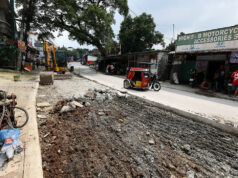BSP excludes interbank borrowings from reserve requirement to free up more funds
THE BANGKO SENTRAL ng Pilipinas (BSP) has moved to free up more funds for lending to productive activities, this time by removing interbank borrowings from classification as deposit substitutes subject to the reserve requirement.
The BSP said in a press release on Friday that its policy-making Monetary Board has formally adopted the new definition of “deposit substitute” under Section 95 of
its charter (Republic Act No. 7653 enacted in June 1993), as amended by RA 11211 (enacted last Feb. 14) which further strengthened the central bank.
Section 95 of RA 7653, or the new BSP Charter, defined a deposit substitute as an alternative form of obtaining funds from the public, other than deposits, through the issuance, endorsement or acceptance of debt instruments for the purpose of relending or purchase of other receivables and obligations.
With RA 11211, the same provision now clarifies that the phrase “obtaining funds from the public” with a narrower definition of borrowing from at least 20 lenders at any one time that are individuals or companies which are not financial intermediaries.
“This means that borrowings from banks, quasi-banks and other financial intermediaries are no longer considered deposit substitutes which are subject to
reserve requirements,” the BSP explained in its statement on Thursday, citing as examples interbank borrowings, repurchase agreements with financial counterparties as well as bonds issued to financial intermediaries.
“The exclusion of these types of borrowings from the reserve base of banks and quasi-banks will result in freed-up liquidity for lending or investment activities,” it added. “It also facilitates the flow of funds within the financial system which may help reduce intermediation costs and, in turn, support economic activity.”
Sought for comment, UnionBank of the Philippines, Inc. Chief Economist Ruben Carlo O. Asuncion welcomed the move, saying in a mobile phone message: “This is good to help raise liquidity in the market.”
“Certain borrowings now will no longer be subject to reserve requirement, thus freeing up more of these instruments for lending and other economic expansion activities,” Mr. Asuncion added.
“Higher liquidity means more opportunities for lending and investment activities for financial institutions, helping the economy expand and growth.”
The move follows cuts totalling four percentage points in banks reserve requirement ratio (RRR) this year, after 2018’s cumulative two-point reduction, with each cut estimated to inject more than P100 billion into the financial system. Starting next month, the RRR will be 14% for universal and commercial lenders as well as non-bank financial institutions with quasi-banking functions, and four percent for thrift banks, while the RRR for rural banks will remain at three percent.
BSP Governor Benjamin E. Diokno told reporters on Thursday that monetary authorities are now watching how fast previous policy moves — including a cumulative 75 basis point reduction in benchmark interest rates to 3.5%, four percent and 4.5% for overnight deposit, overnight reverse repurchase and lending, respectively — are being reflected in the market.
He said it takes up to nine months to see the results of monetary policy adjustments and that he remains committed to cutting the RRR to single digit when he ends his term in 2023.
Latest available BSP data showed that domestic liquidity picked up by 7.7% year-on-year in September to P12 trillion, compared to the 6.3% growth recorded in August. — with Luz Wendy T. Noble



